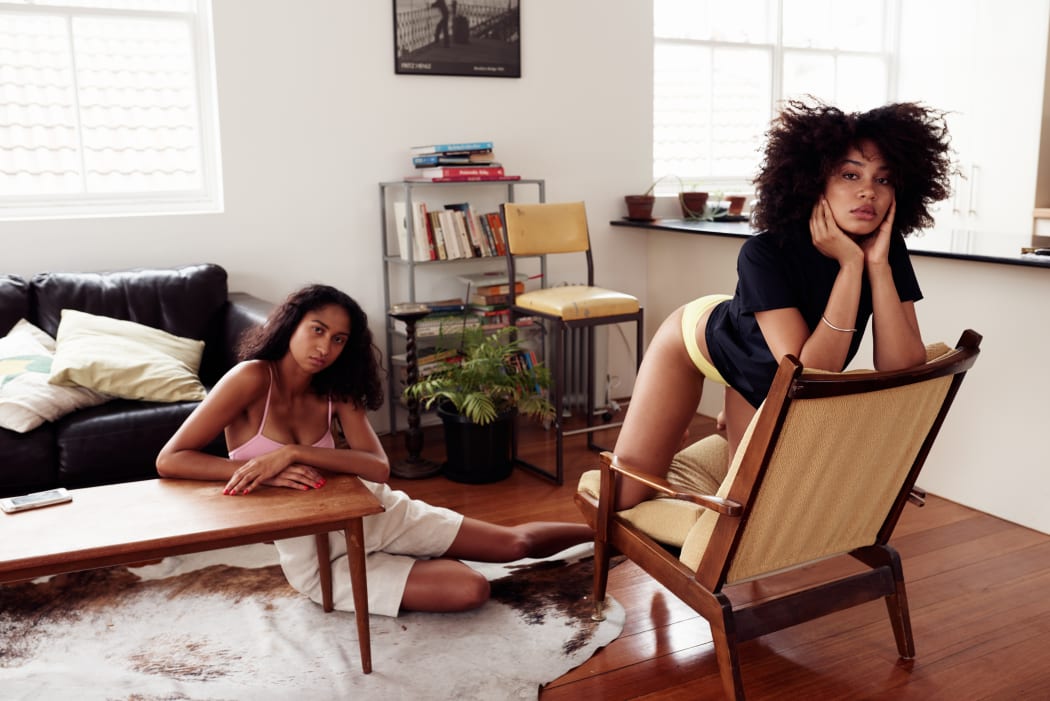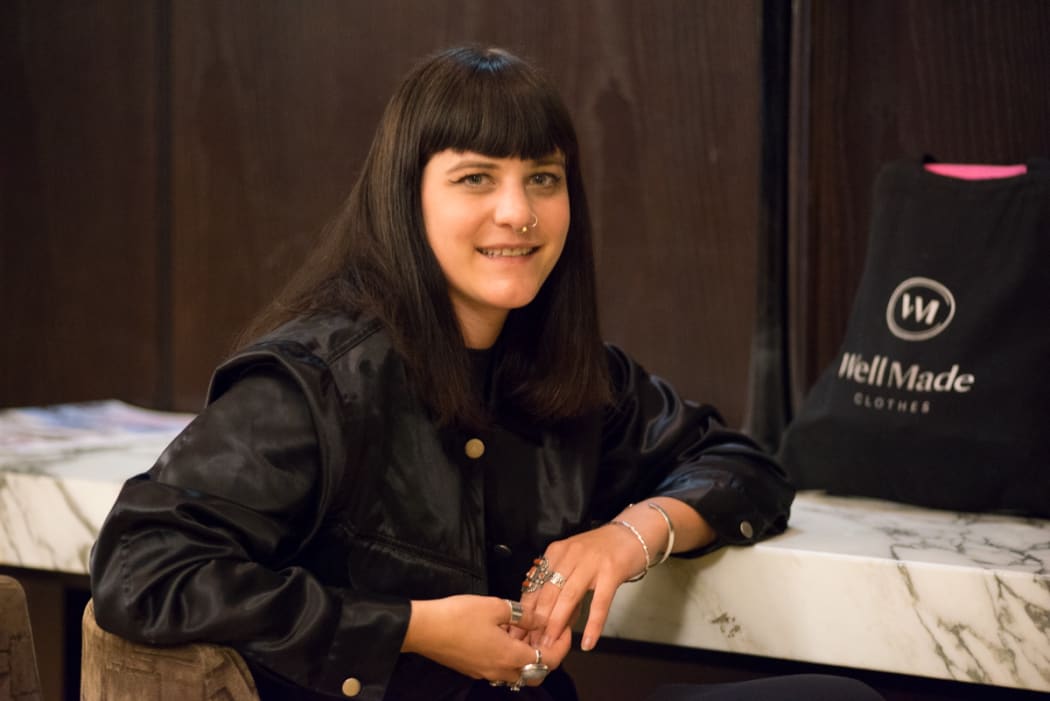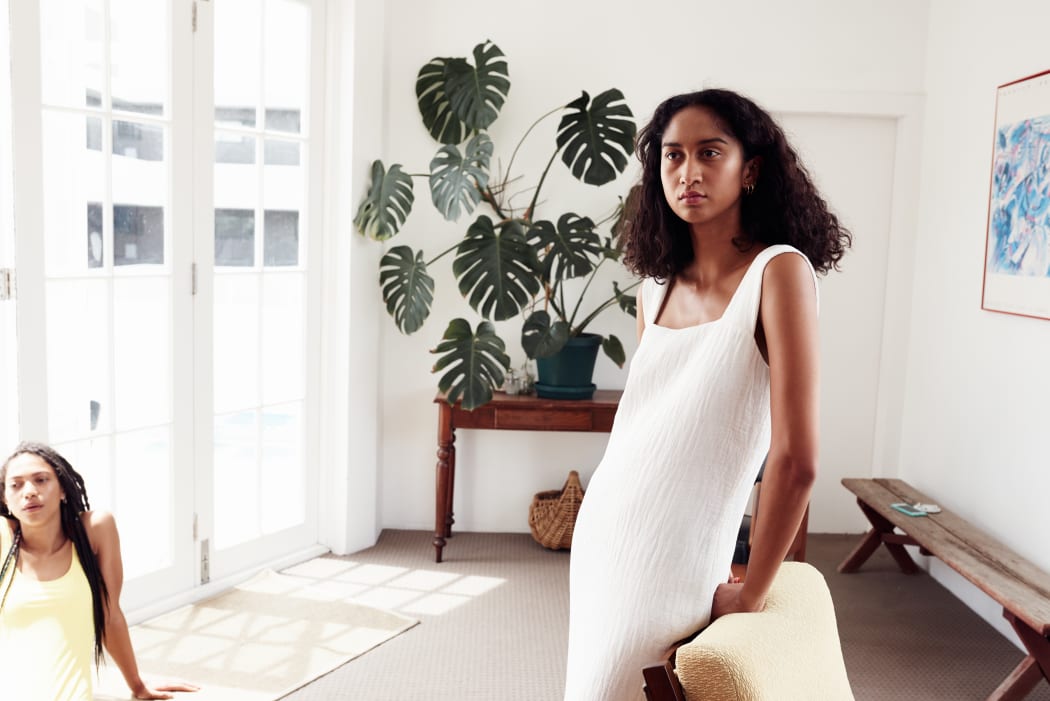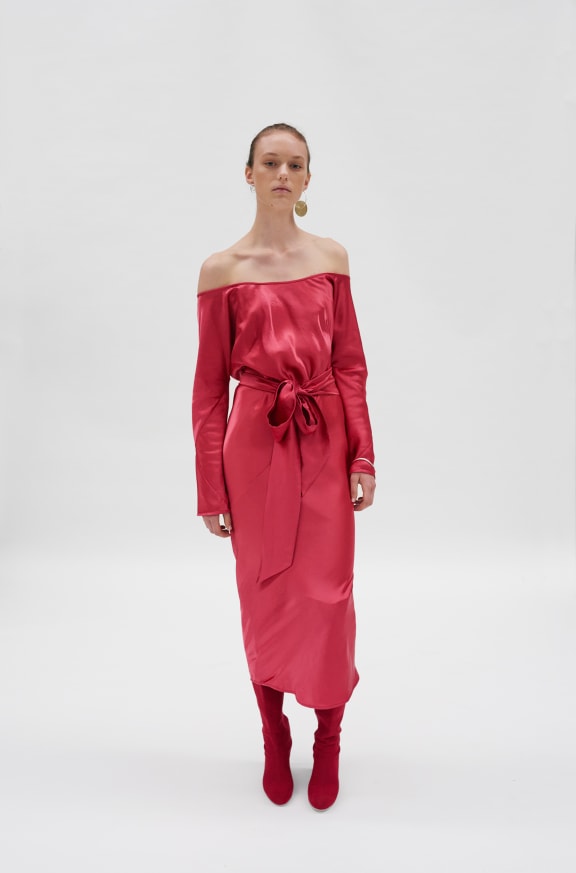“The fashion industry supply chain from seed to retail floor is so complex that it’s basically impossible for a brand or a consumer to be absolutely perfect.” - Courtney Sanders, Co-founder of Well Made Clothes

Well Made Clothes Swimwear campaign Photo: Jack Grayson
Getting dressed isn't quite what it used to be. With the rise of mass-produced, cheaply made garments, we have more choice than ever. But although fashion can be fun and frivolous — even throw-away — what we choose to wear can now say as much about our values, as it does our sense of style.
The same can be said for the designers who are keen to reassure their customers that 'no-one was harmed in the making' of this garment.
Courtney Sanders, Co-founder of ethical online store Well Made Clothes started her business with Kelly Elkin, and says she wants to provide her customers with the option to make conscientious decisions based on their values.

Courtney Sanders, Co-founder of Well Made Clothes Photo: Sonia Sly
The store works with a stable of around 45 independent designers who must meet at least one of their 8 core values: handcrafted, transparent, sustainable, local, fair, minimal waste, vegan and gender equality.
And while the market is competitive, Courtney says that over recent years an increasing demand for transparency from consumers is helping to keep a steady flow for the demand and supply of clothing that has been ethically produced — the only hindrance in the past, is the notion that sustainable clothing lacks attention to detail.
"There are lots of people making ethical clothing, but [it] has a really bad rap for being badly designed. So it was really important to us that Well Made Clothes was design-led, because if something is poorly designed then you're not going to wear it, which is [wasteful], and that's also bad for the environment."

Well Made Clothes promote ethical fashion Photo: Jack Grayson
So why require designers to meet only one of those eight values? While many young designers are entering the industry with either a sustainable or ethical focus, finding a process that is entirely responsible is tricky even for established brands.
"Sometimes part of their range will meet our values and part of it won't, so we'll stock the part of the range that does."
Before the inception of Well Made Clothes Courtney says that a curated online store like theirs didn't exist in either New Zealand or Australia. The pair were passionate about a multi-brand site with an ethical focus and applied for a grant from The Walkley Foundation in partnership with Google — winning it last year enabled them to start their business and invest in industry-leading technology. The store doesn't buy products wholesale, but instead, reflects the real-time stock of their designers.

Vegan shoes by Rafa and Miss Crabb dress stocked at Well Made Clothes Photo: Jack Grayson
But running an ethical clothing store isn't without challenges, and not only because of the deluge of fast fashion available at the mall these days. At the beginning, people questioned why the store stocked leather shoes, because in many people's minds leather isn't ethical.
Courtney's response is that the process of creating vegan shoes — the leather alternative — can actually be harmful to the environment because of the chemicals used to make PU or PVC, which doesn't break down naturally, "It's about weighing up what's important to you," she says.
"To be clear, there is also good leather and bad leather and we only stock end of roll leather, off-cut leather or bi-product leather."
So how competitive is the ethical fashion industry and how does it affect designers who are trying to sell in an overloaded and increasingly complex marketplace?
"I think people who are interested in the fashion industry and where the fashion industry is going are actively trying to buy less because waste is one of the biggest problems in the fashion industry."
"In Australia, on average, people throw away 30 kilograms of worth of clothing every year, which is 500 million dollars in wasted spending. So people on the whole are actually buying more poor quality clothing.”
Courtney says that conscientious fashion lovers are keen to pay more for garments that will last the distance and have been produced responsibly. The important thing, she says, "Know what you're buying."

